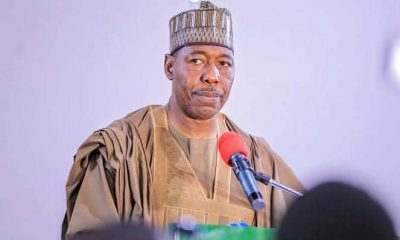Politics
FG urged to create more awareness on its intervention programmes in South East

Stakeholders at a one-day town hall meeting organized by the Federal Ministry of Information and National Orientation in Umuahia, Abia state, have tasked relevant government agencies to step up their sensitization of citizens of the South East zone on the various Federal Government intervention initiatives.
This is also as they have urged Students Representative Unions (SRU) in various Tertiary institutions to work with their governing councils and ensure that many students benefit from the Intervention programmes of the federal government.
The pleas are some of the resolutions reached at the end of the sensitization meeting.
The stakeholders noted that students from the South East zone of the country fell short in the recently released list of beneficiaries of the students loan scheme, pointing out that many parents and expected beneficiaries of the schemes from the zone are not aware of existence of the Intervention programmes.
In the address he sent to the occasion, which was read by Mrs Abiakam Gloria Ify, the Minister of Information and National orientation, Mr. Mohammed Idris, explained that the federal government ‘s intervention programmes are designed to ease the impact of recent policy changes , particularly, the removal of the fuel subsidy.
Idris made it clear that the intervention programmes are meant to empower , uplift and provide relief where it is most needed.
He named some of the programmes to include Students loan Scheme, Consumer Credit Corporation, Skill-up Artisans programe, NDDC Internship Scheme for Niger Delta Youths, etc, and implored all to take advantage of them.
His words: “I , however, urge all states and local governments to actively disseminate information about this initiative s and ensure that citizens across all regions are fully aware and encouraged to take advantage of these opportunities”.
The sensitization session was attended by representatives of the physically challenged, the religious, Students, traditional rulers, government functionaries, traders, and others from the business community.











